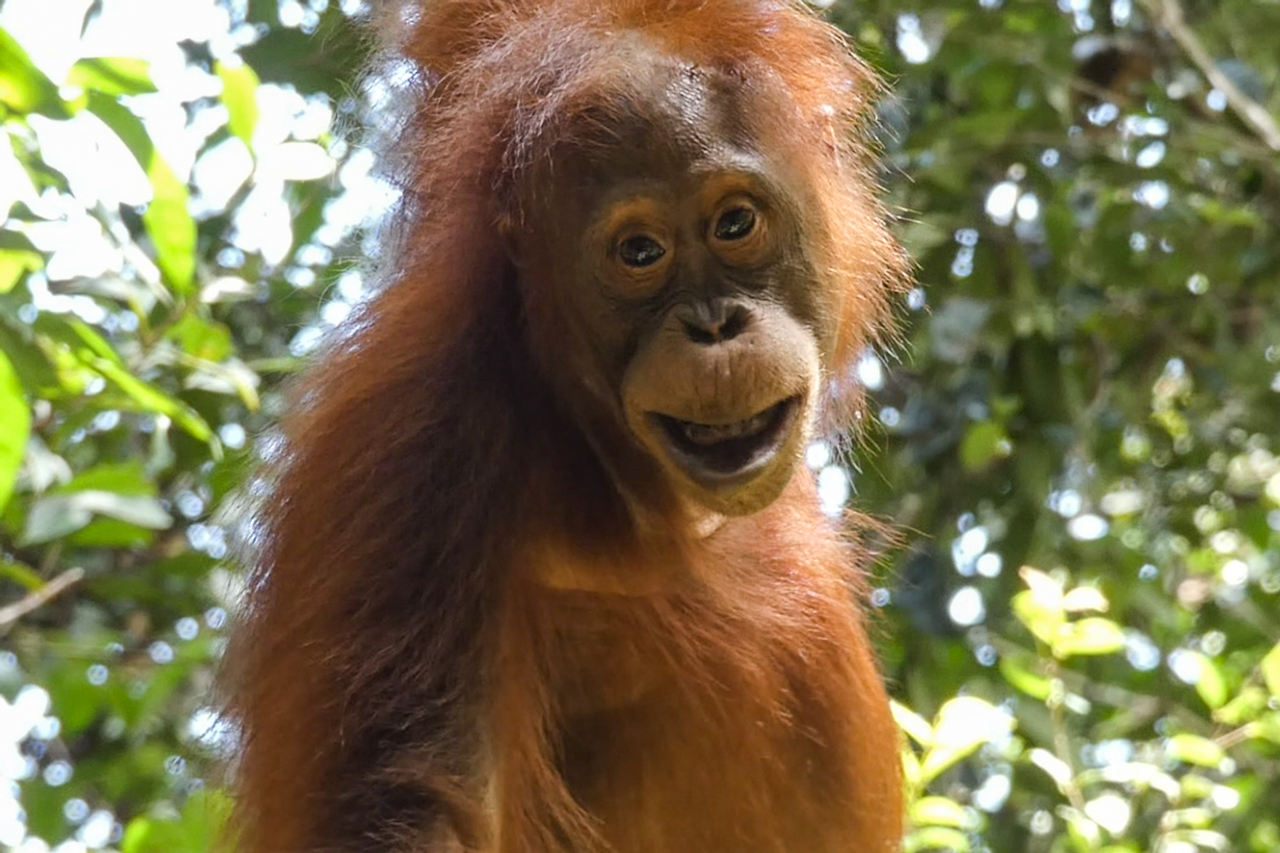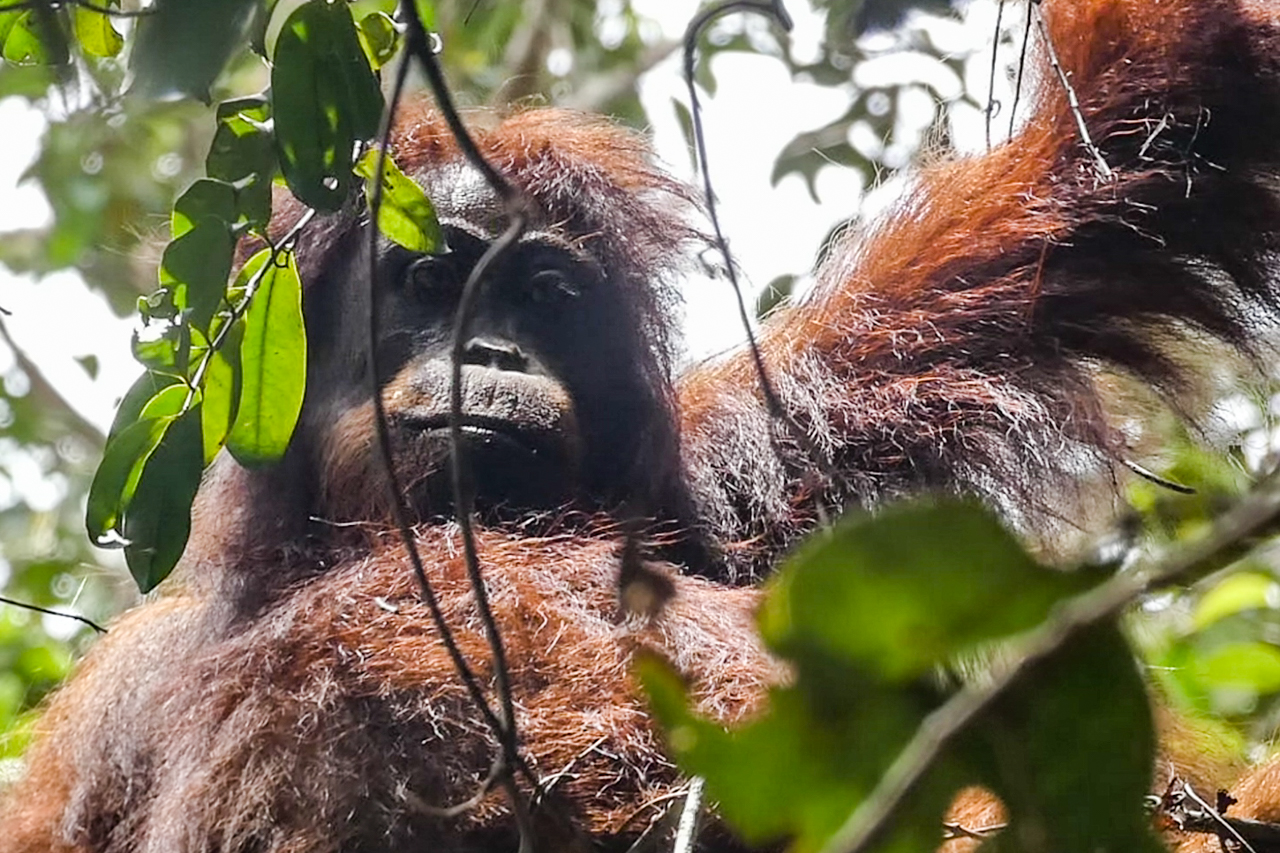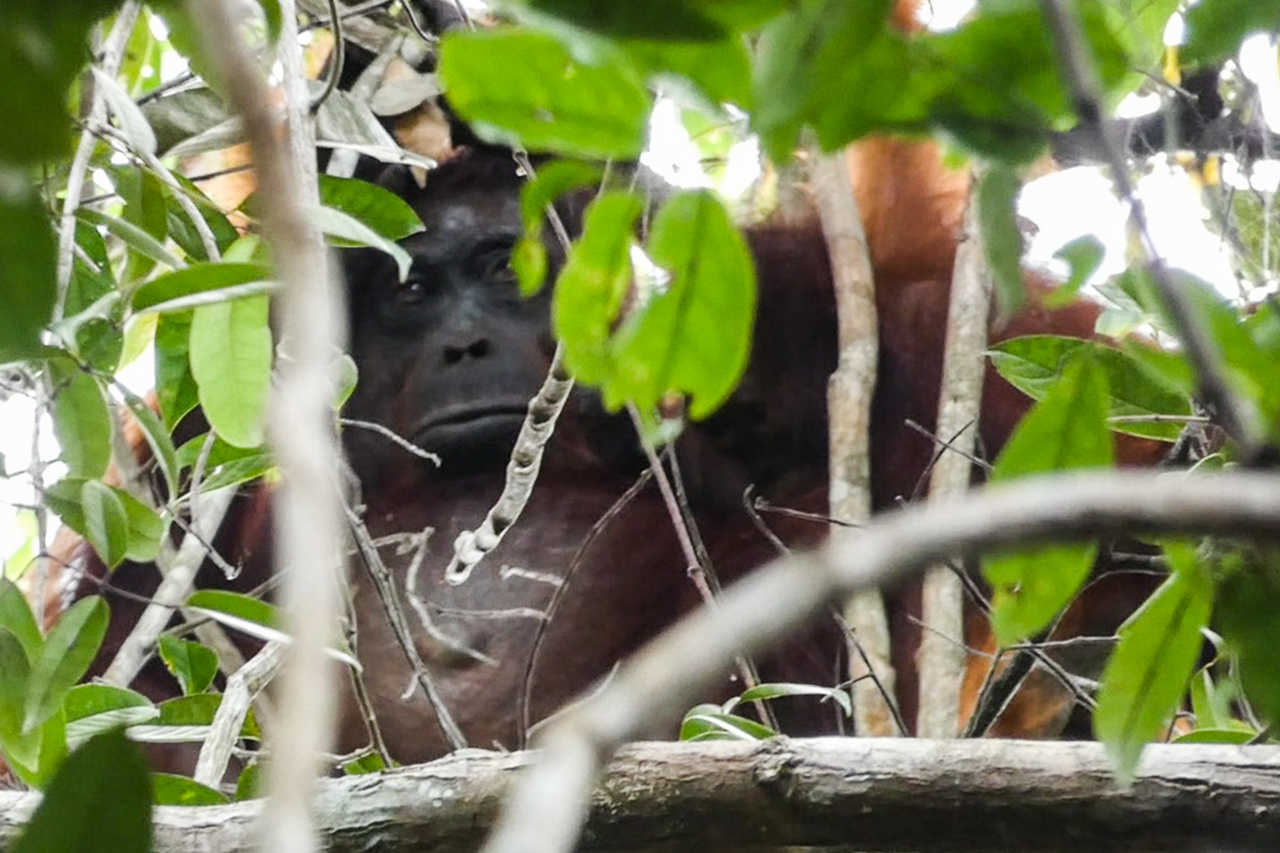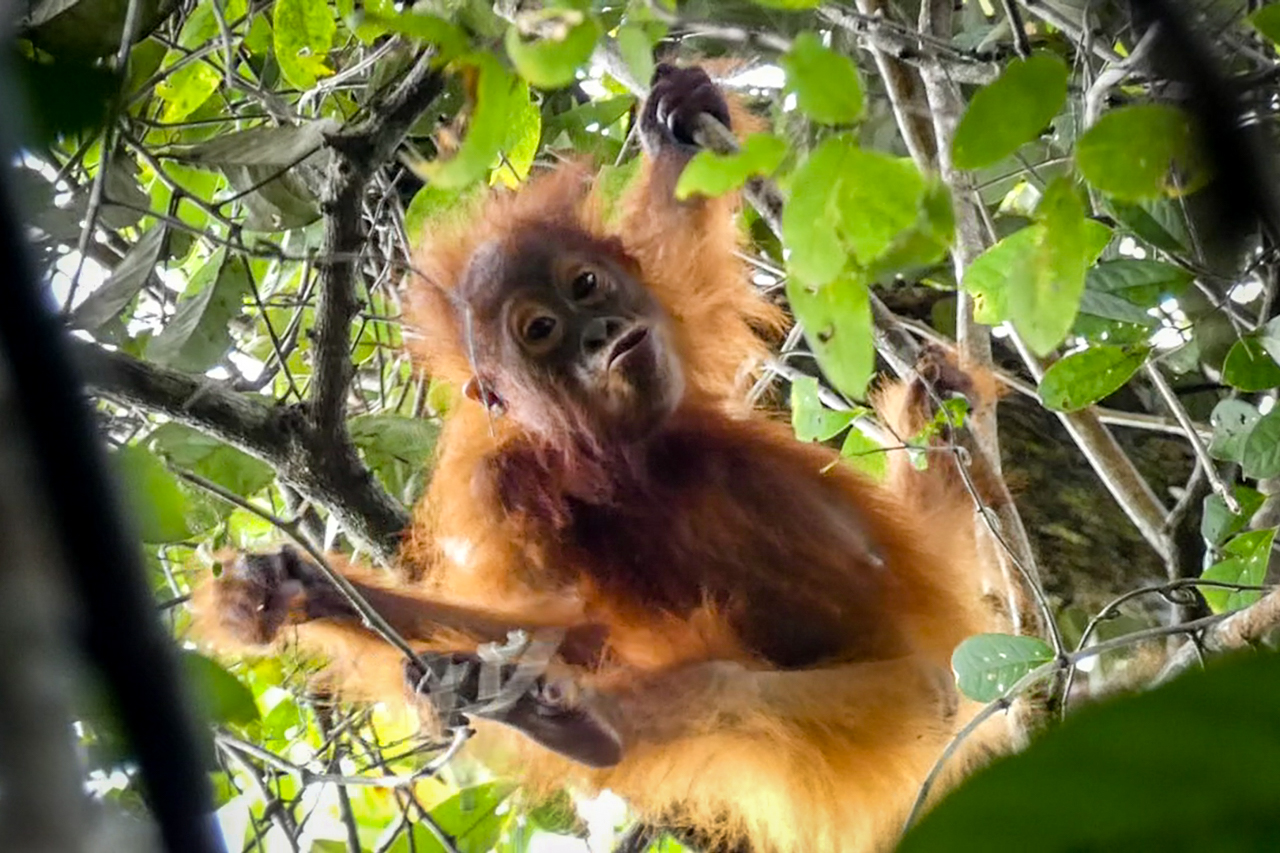A Close Encounter with Gara the Orangutan

Photo of Gara by : Azis OU/BNF
Written by : Yohanes Prahara, Content Creator and Media Liaison BNF Indonesia
Learn more about Borneo Nature Foundation
Adopt Gracia and her Kids today! (Funds support BNF's resforestation program!
As the year draws to a close, the rainy season begins in Indonesia. For several months, the pounding rain becomes a near-constant backing track, and the air hangs heavy with moisture.
Despite the extreme weather, our Orangutan Team—consisting of “The Twins”, Aziz K and Azis OU—are in high spirits. BNF’s orangutan follows were suspended for two years during the Covid-19 pandemic, and the team has finally been given the go-ahead to track down individual orangutans and see how they fared in our absence.
A slight chill lingered in the early morning air. Azis OU stood for a moment, closing his eyes to breathe in the unmistakable smell of the peat-swamp forest after a night’s rain.
“I’ve missed the smell of the forest in the morning. We haven’t followed orangutans for a long time because of Covid-19,” Azis said, smiling up at the thick canopy of trees overhead.
Navigating the forest is no easy task: the boardwalk into the flooded forest is slippery and covered in moss, and where it ends the team must forge on through knee-high swampy water. They walked as quietly as possible, listening out for movement in the trees.
Azis OU explained that the high-water levels at this time of year make it even harder to find orangutans in the dense forest.
“If you walk too fast, it stirs up the water and creates a lot of noise. So, we have to go slowly,” Azis said.
Azis OU told us that over the last couple of months he and Aziz K had managed to find several orangutans they knew from before- namely, Indi, Iris, Icarus, Gretel, Gracia and Gara.

Icarus

Indi

Iris
Most were busy eating when the team found them, feeding on forest fruits or extracting termites from rotten tree trunks. Plants commonly eaten by wild orangutans include:
- Liana Bajakah Lua (Gnetum sp1)
- Kelumun Buhis (Nephelium maingayi)
- Kemuning (Xanthophyllum cf.ellipticum)
- Liana Willugbia (Willugbeia sp 1)
- Liana Kuning (Fibraurea tinctoria)
- Malam-Malam (Diosprous bantamensis)
- Rayap (Isoptera)
- Jangkang Kuning (Xylopia Fusca)
- Nyatoh Gagas (Palaquium cochlearifolium)
Heavy rain and strong winds have disrupted the team’s orangutan follows on a number of occasions. Windy weather can be especially dangerous in the forest due to the risk of falling trees, so “The Twins” quickly returned to camp for their own safety.
“If it rains very heavily, we usually end the follow- apart from it being dangerous for us, the orangutans take refuge so it’s hard to see them,” Azis OU continued.
For Azis OU, the most special moment recently came in October when he met Gara, a young male orangutan of six years old.
“Gara was eating leaves, just sat there about two meters from me!” he recalled, grinning.
Of the many young male orangutans, Gara is his favourite. Azis OU has been following Gara since he was a tiny baby, watching his progress year on year until the pandemic disrupted BNF’s field operations.
“I like doing this job because I can see wildlife up close. Seeing these individuals grow up, watching them play and learn… their behaviour is a joy for me,” Azis OU said.
Aziz K agrees that following orangutans is a fun job, but also an educational one. He has learnt a great deal about these primates by observing their behaviour over the past few years.
“It’s not a learning experience you can get in school- it’s something you have to see for yourself. This knowledge sustains our efforts to protect orangutans in the Sebangau National Park forest,” Aziz K added.
He hopes that orangutan follows will continue in full so that he and Azis OU can get reacquainted with all the individual orangutans known to BNF’s field staff (and perhaps a few new ones!) Gathering behavioural data will help to inform conservation management in Indonesian Borneo, protecting habitat for orangutans and the countless other species that share their rainforest home.
